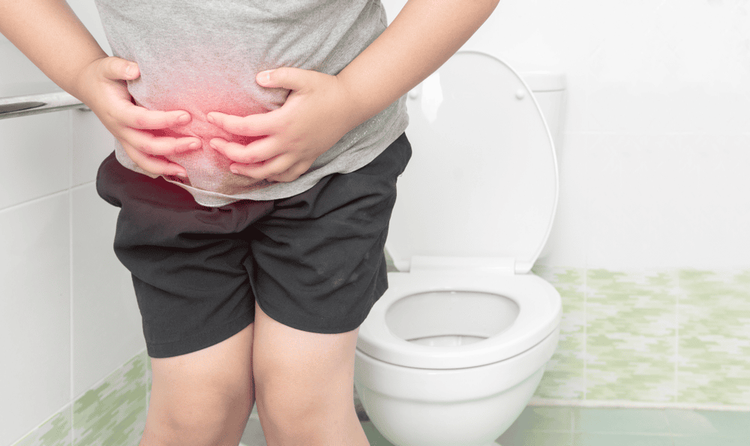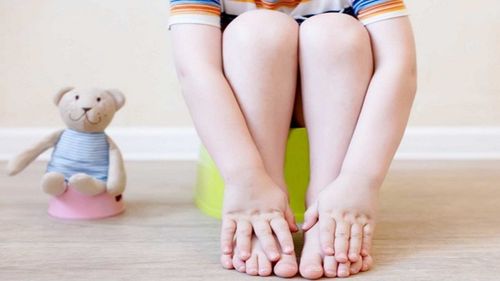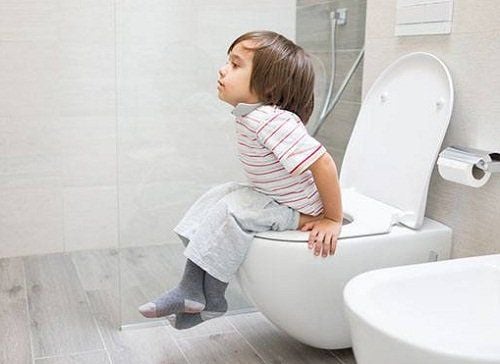This is an automatically translated article.
The article was professionally consulted by a doctor from the Department of Medical Examination & Internal Medicine - Vinmec Da Nang International General HospitalBeing constipated means your bowel movements are hard or less active than usual. Almost everyone experiences this condition at least once. Although constipation is usually not serious, you should feel better once your body returns to normal.
1. Signs of Chronic Constipation
Some common signs when you are constipated such as:
Feeling unable to go to the toilet or not going to the toilet Takes a long time to go to the toilet Decreased bowel movements Hard stools Stomach bloating, abdominal pain You Feeling full, but unable to release waste from the body.
For some people, chronic constipation means that bowel movements don't work properly for weeks at a time.
For others, chronic constipation means straining or difficulty with defecation, such as wanting to go to the bathroom but not being able to, no matter how long you sit.
Generally, the definition of chronic constipation is the frequency with which you go to the bathroom less than three times per week for several weeks.

Táo bón nếu không được điều trị dứt điểm sẽ trở thành mãn tính
2. Causes of Chronic Constipation
Some causes of constipation, including:
Diet: Low in fiber and low in water Function: Irritable Bowel Syndrome , Sedentary, Pregnancy, Neuropsychological causes (such as depression) , confusion..) Drugs: Psychoactive drugs (anticonvulsants, antiparkinsonian), Psychiatric (antidepressants, antipsychotics), narcotics or opiates, calcium blockers, antacids, iron, fiber preparations Metabolic, endocrine and collagen vascular disease: Diabetes, pituitary insufficiency, hypothyroidism, hyperthyroidism, hypercalcemia, hypokalemia, scleroderma, chronic renal failure Neuromuscular: Brain: Stroke Brain, Parkinson's, Brain Tumors Spinal cord: Cauda equina, multiple sclerosis, spinal cord injury Peripheral nerves: Hirschsrung's disease, autonomic neuropathy, Chagas disease Physiology: Slow transit constipation, Pseudo-obstruction intestinal tract, sigmoid rectal prolapse
3. Is chronic constipation dangerous?
If you or a loved one suffers from chronic constipation, much of the anxiety stems from a lack of knowledge about the issue. The fear of constipation, the discomfort caused by chronic constipation can be debilitating. Constipation can interfere with work and even cause you to miss other recreational activities. So is chronic constipation really dangerous?
Chronic constipation itself is not a life-threatening disorder; Although dangerous disorders such as colorectal cancer should be excluded by colonoscopy when appropriate. It should only be treated if it causes complications that significantly interfere with quality of life. Such complications include abdominal pain, ulcerative colitis, colon perforation, and anorectal problems: anal fissures, hemorrhoids, rectal prolapse, fecal obstruction, bowel obstruction, fecal incontinence, etc.
Chronic constipation is not dangerous but has a negative impact on quality of life as well as work, so you need to pay attention to how to eat, exercise and drink plenty of water.

Táo bón mãn tính không gây nguy hiểm nhưng sẽ ảnh hưởng nghiêm trọng đến cuộc sống của người bệnh
4. Measures to relieve chronic constipation
If found, it should be treated according to the cause of constipation. If the cause cannot be found or treatment of the condition causing the constipation does not help, treatment should be symptomatic. Here are some ways to help relieve chronic constipation, including:
Diet with at least 25-30 grams of fiber and 6 cups of water (250 ml/cup) to create soft stools for daily Try to go Sanitize as a morning routine. Listen to your body. Always go to the bathroom when you feel the urge. Regular exercise helps improve bowel movements If there is a hard stool that causes obstruction, you should actively use laxatives Some specific measures to reduce chronic long-term constipation such as:
Follow a diet healthy: include plenty of fruit, whole grains, bread and fresh vegetables every day. They contain a lot of fiber that can relieve constipation. Certain fruits, such as apples, apricots, grapes, peaches, pears, plums, plums, raspberries, and strawberries are high in sorbitol, which is a natural laxative. Choose foods rich in fiber, such as whole grains or whole wheat bread, instead of refined and processed foods. If you're not used to eating high-fiber foods, try them one at a time to avoid bloating. Stick with this routine, even if you don't get immediate results. Fiber improves constipation within a few days, but it can take up to four weeks before you feel the positive effects. Drink plenty of water: You need at least 1.6 liters of fluid per day. A few glasses of fruit juice a day, and apricot and prune juice are good choices because they are high in sorbitol. Everyone's digestive system is different, so you can try different food sources to deal with constipation. It may not always be high fiber foods that solve the problem. Gentle exercise such as walking, swimming, cycling on a stationary bike, yoga helps reduce the risk of constipation as well as promote health. Take psyllium, which is a bulk-forming constipation medication that contains fiber. If you are taking a vitamin supplement that contains iron, you can consult your doctor to change it if your constipation becomes severe.
Please dial HOTLINE for more information or register for an appointment HERE. Download MyVinmec app to make appointments faster and to manage your bookings easily.
Article reference source: webmd.com, healthline.com












